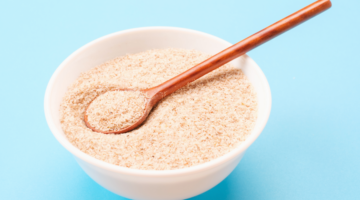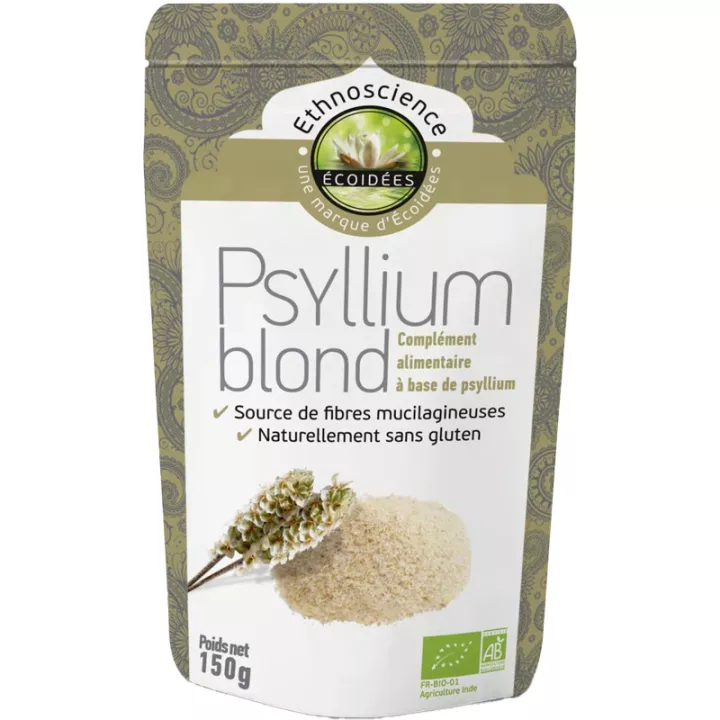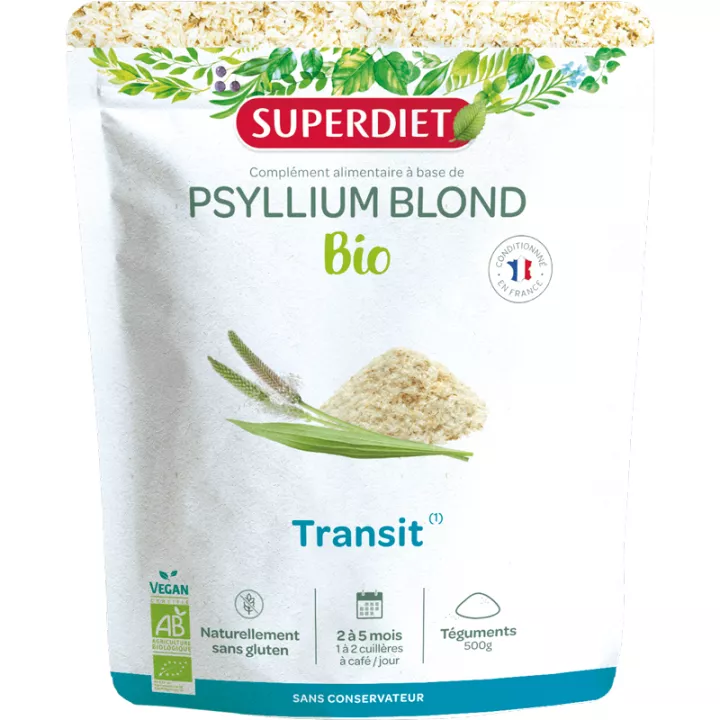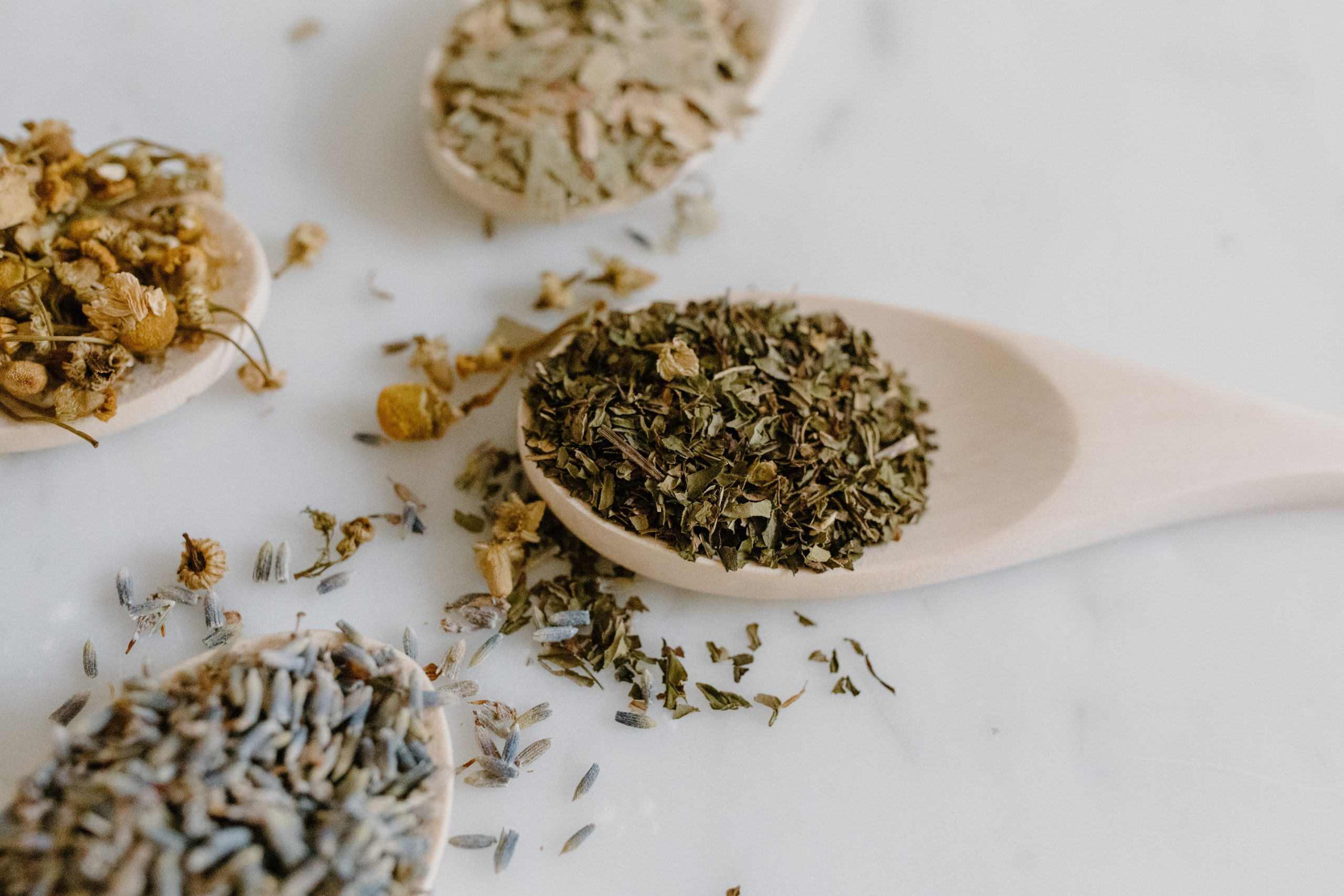What is Ispaghul Semence (Pink Psyllium) used for?
Ispaghul seeds, also known as pink psyllium, have been recognized since ancient times for their mild laxative properties. Derived from the Plantago ovata plant, they were used by the Egyptians over ten centuries BC for their therapeutic virtues. Mucilages, the active constituents of the seeds' husks, give them the ability to absorb water, forming a gel that acts effectively against constipation and diarrhea.
The soluble fibers contained in the seed coat of psyllium seeds are particularly useful for people suffering from irritable bowel syndrome or ulcerative colitis. In fact, they help to soften stools, reducing the symptoms of hemorrhoidal attacks and providing noticeable relief from abdominal pain. In addition to their effects on digestion, psyllium husks are also known to regulate blood sugar levels after meals, a valuable benefit for diabetics.
Traditional use of ispaghul also includes the treatment of urinary tract inflammation, duodenal ulcers and kidney disease. Thanks to its appetite-suppressant effect, it is often incorporated into slimming diets to reduce calorie intake. By slowing down the absorption of fats and sugars, ispaghul reduces the caloric intake of the meals with which it is associated, thus contributing to weight loss.
Ispaghul is a natural solution for those seeking to improve their intestinal transit. Whether you suffer from chronic constipation or diarrhea, these seeds act as a natural regulator, forming a viscous gel that facilitates the passage of stool. This mechanical effect results from the soluble fibers ' ability to absorb up to eight times their volume in water, thus increasing the size of the food bolus and stimulating intestinal movement.
For people suffering from irritable bowel syndrome or ulcerative colitis, ispaghul plays a protective role by lining the intestinal walls. It forms a natural dressing that soothes inflammation and reduces painful spasms. The seed husks also help normalize stool consistency, reducing the pain associated with these pathologies.
Ispaghul seeds have also been shown to help control blood cholesterol levels. Although European health authorities have restricted claims in this area, ispaghul's soluble fibers have been shown to trap dietary fats, limiting their absorption into the body. In the United States, this property allows ispaghul to be included in diets aimed at reducing the risk of cardiovascular disease.
For diabetics, ispaghul offers significant support by delaying the passage of food through the intestine. This helps to limit postprandial blood sugar spikes and may reduce the amount of insulin needed after meals. In addition, by filling the stomach, it acts as a natural appetite suppressant, helping to control cravings and manage body weight more effectively.
Psyllium has been used for centuries to relieve a variety of ailments beyond digestive disorders. In traditional Indian medicine, it is recommended for treating inflammation of the urinary tract, difficulty in urinating and intestinal infections. Psyllium bran is also prized for its appetite-suppressant effects in slimming diets, offering a natural solution to appetite control without resorting to chemical substances.
Jardin d'occitanie also offersEcokraft Cornflower, at the best price in our online pharmacy.
How to use this plant?
To take full advantage of ispaghul's benefits, we recommend consuming the seed husks one to three times a day, at a rate of 10 grams per dose. Mix them in 100 ml of water, and drink immediately before the gel forms. Be sure to drink at least 200 ml of additional water after each intake to avoid intestinal obstruction. Adequate hydration is essential to ensure the effectiveness of soluble fibers and prevent any risk of blockage.
Give your opinion on the advice for use and dosage of Ispaghul Semence (Psyllium Rose) with our partner Verified Reviews after your purchase.
Precautions for use
Psyllium seeds are not suitable for everyone. They are contraindicated in people with rectal bleeding, severe intestinal disorders such as stenosis, ileus or intestinal paralysis. In the event of constipation or persistent diarrhoea lasting more than three days, it is imperative to consult a doctor.
Beware, too, of drug interactions: psyllium seeds can reduce the absorption of substances such as iron, zinc, calcium and heart medications. Keep an interval of at least two hours between taking ispaghul and other medications. Diabetics taking insulin should adjust their dosage accordingly.
What does it contain?
Latin name: Plantago ovata F.
Family: Plantaginaceae
Common names: pink psyllium, Isabgol, blond psyllium, psyllium, Indian plantain
Parts used: seeds
Origin: Its country of origin gives it the name "Indian plantain".
Packaging
100 g, 250 g or 1 kg.












